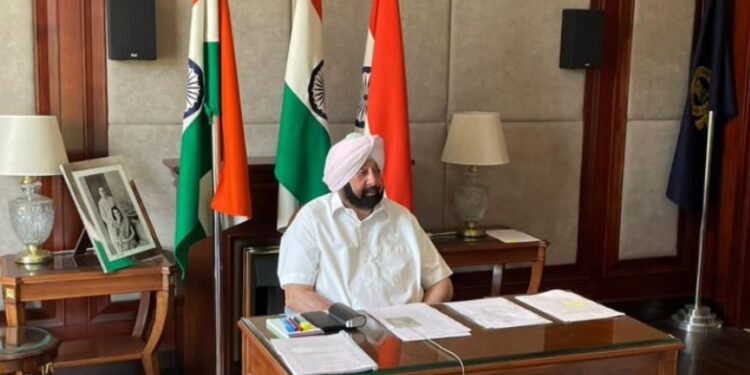1ST OF ITS KIND IN INDIA SPV TO HANDLE OPERATIONS & MAINTENACE OF LARGE MULTI-VILLAGE SURFACE WATER SUPPLY SCHEMES
Chandigarh, June 2:
To ensure supply of potable water on long term sustainable basis in rural areas of water quality affected districts, the Punjab Cabinet on Wednesday gave approval for the creation of Special Purpose Vehicle (SPV) for Operations & Maintenance of large multi-village surface water supply schemes across the state.
This first-of-its-kind in India SPV will be a utility company ‘Punjab Rural Water (Utility) Company’ under the Water Supply & Sanitation department.
Chaired by Chief Minister Captain Amarinder, the Cabinet, at a virtual meeting, also accorded approval to open an account in the name of the SPV, with seed money of Rs.25 crore allocated from the World Bank funds (64%) and State Budget (36%), to support its functioning in the initial five years of operations. The allocation will help meet the shortfall in revenue collection, if any, to fulfill the contractual obligations of the SPV and its administrative expenses.
The Cabinet also authorised the Chief Minister, as Chairperson of the State Water Supply & Sanitation Mission, to approve, on behalf of the Council of Ministers, any amendments in the structure, role and responsibilities, funding pattern etc. which may be required in the future.
The Water Supply & Sanitation department is currently in the process of executing five new multi-village surface water supply projects covering 612 villages of Amritsar, Tarn Taran and Gurdaspur districts, and another project covering 408 villages in the fluoride affected blocks of districts Patiala and Fatehgarh Sahib. These projects are under construction.
Another project, covering 39 villages of Rupnagar district (Nurpurbedi block) affected by Iron/Arsenic, was commissioned in 2019. Besides, a project in Moga district, based on Design, Build Operate and Transfer (DBOT) model, was completed by M/s L&T Ltd. in January 2021 with a total expenditure of Rs. 218.56 Crore, benefitting 85 villages and creating a positive impact on the lives of 3.64 lakh people.
Giving details of the SPV structure, an official spokesperson said it will ensure compliance of the contractual obligations by all stakeholders, so that the assets are properly maintained and there is coordination among various stakeholders i.e. Water Supply & Sanitation department, contractor, Gram Panchayats and users. The SPV, as an autonomous body under DWSS, will be governed by its own constitution, with ring-fenced accounts giving it financial independence.
The ownership of the assets created under the projects would vest with this SPV. This specialised agency shall ensure maintenance of higher service delivery standards (24X7) water supply with judicious use of water along with proposing innovative projects (use of solar power and smart metering).
The SPV shall institutionalise mechanisms and SOPs for timely billing and collection to the contractor(s) for bulk water usage and provide social, institutional and technical support to the Gram Panchayat Water Supply Committees (GPWSCs), Cluster Level Committees (CLCs) and Scheme Level Committees (SLCs). Further, management of day-to-day operations, including water quality monitoring, management of water meters, supervision of control room operations, will fall within the purview. This institutional arrangement is proposed to enable a more efficient and effective running of the large-scale surface water scheme(s).
The SPV is envisage as a thin utility in the Multi Village Scheme, in the domain of finance (managing connections, promoting new commercial and industrial connections, meter reading, billing, collection, online payment gateway services, financial accounting & management, tariff assessment, statutory compliance), communications & customer service (grievance redressal, IEC activities, training & capacity building, branding and marketing), technical (monitoring of water quality, maintenance of intra-village assets, monitoring and inspection of O&M contractors, supports Gram Panchayat Water Supply Committees (GPWSCs), Cluster Level Committees (CLCs) and Scheme Level Committees (SLCs), promoting energy efficiency, coordinating with all stakeholders) and support for database and knowledge management, generation and reporting of regular MIS.








